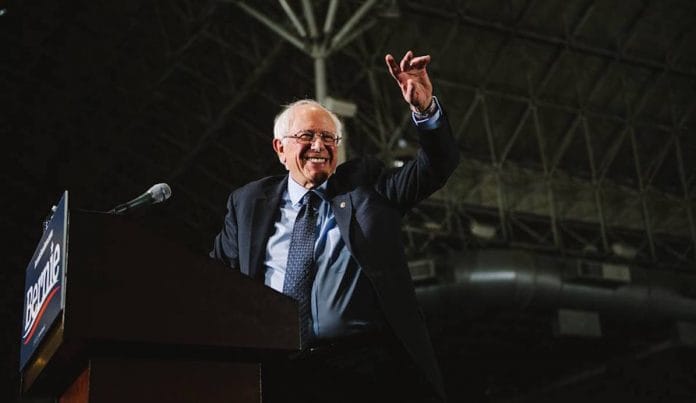New Delhi: The seemingly innocuous preference for Indian food by American voters could have high stakes for candidates in the running for US President.
The latest New York Times/Siena College poll of 584 pro-Democrat voters from Iowa caucuses — considered the first major contest of the presidential primary season — found that asking pollsters “non-political” questions could actually reveal quite a lot about their political positions.
The relationship between Indian food and candidate choice proved to be a distinguishing predictor, the survey said.
Those voting for Democrat candidates Bernie Sanders or Elizabeth Warren are more likely to have eaten Indian food in the last 10 years than those voting for Joe Biden or Pete Buttigieg, it said.
Sanders is at the forefront here: 71 per cent of his voters have been to an Indian restaurant in the last 10 years, after accounting for factors like age, gender, and race.
“A voter’s orientation toward the world is related to candidate choice, and it turns out that eating in restaurants that celebrate less familiar cultures is one way to measure where people think they are more connected: to those around them locally or to people farther afield,” wrote political scientist Lynn Vavrek, who analysed the poll, Thursday.
US voters and Indian food
Vavrek’s analysis revealed that there were no discernible differences in responses when it came to other “non-political” questions, like the importance of buying organic food, using Twitter to check political news, or watching TV shows on premium outlets. Most people, regardless of their candidate of choice, responded similarly. The question on Indian food in the survey is where the differences became most stark.
Indian food and other “world oriented” questions have a history of predicting voter allegiances.
In 2008, Indian food became an indicator of who would vote for former US president Barack Obama versus who would vote for his rival Hilary Clinton. “The more likely that people were to experience other cultures probably unfamiliar to them — through travel or food — the more likely they were to vote for Mr. Obama, even controlling for things like income, education, personality, racial attitudes and city living,” said Vavrek. Ditto for those who did or didn’t vote for US President Donald Trump in 2016.
A survey by food delivery service Grubhub revealed in 2016 that there was a correlation between the politics of an area and food dish preference. The “most Republican foods” were sweet and sour chicken and cannoli, whereas chicken vindaloo and massaman curry were among the “most Democrat foods”.
Counter-intuitive predictors of politics
There are other similar correlations too. In 2019, the Atlantic wrote that Republicans and Democrats had “wildly” different reactions to repulsive photos.
“Our political beliefs may derive from a specific aspect of our biological makeup: our propensity to feel physical revulsion,” it wrote.
Also read: Socialism may just be what the service economy needs






